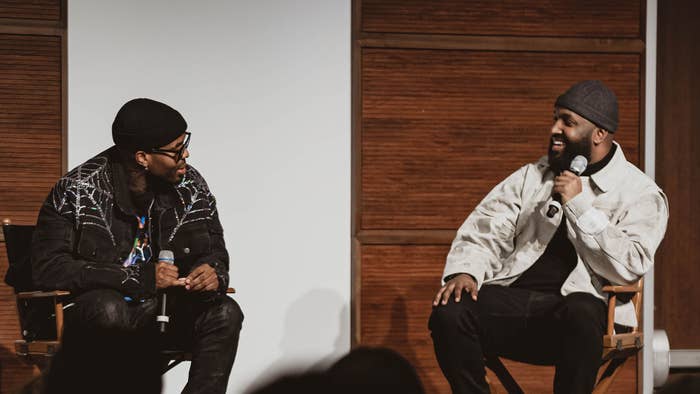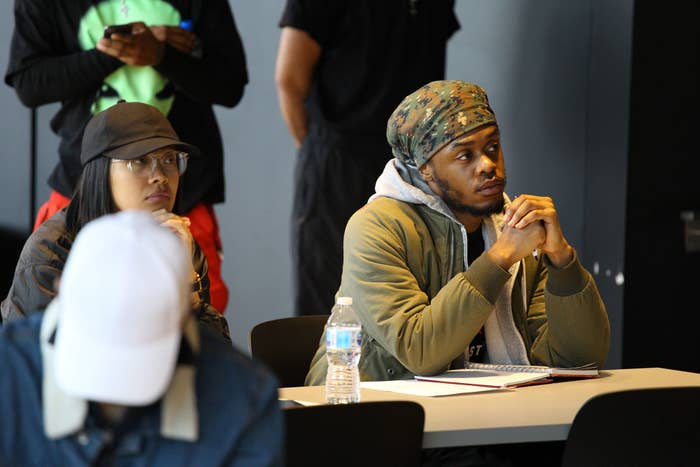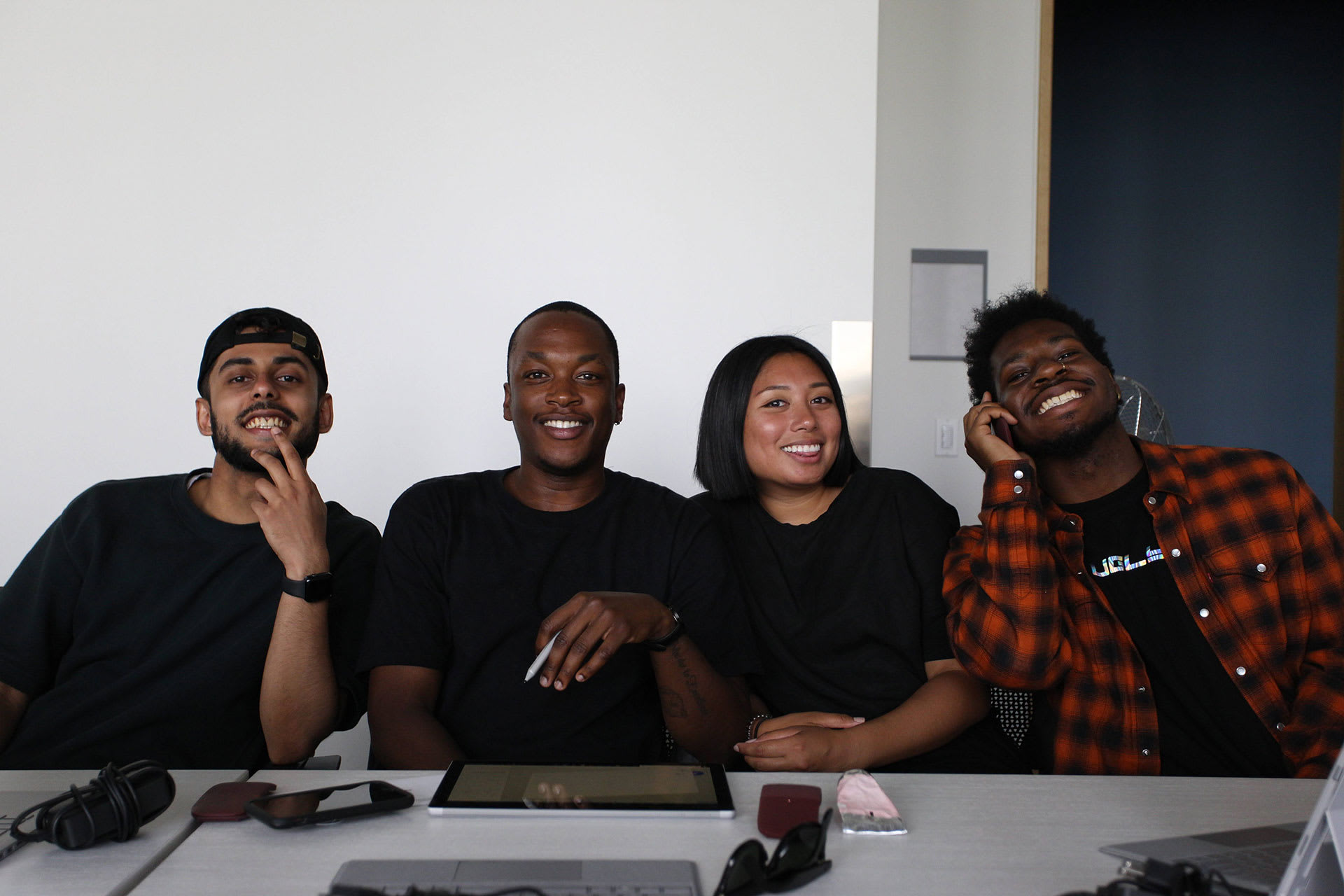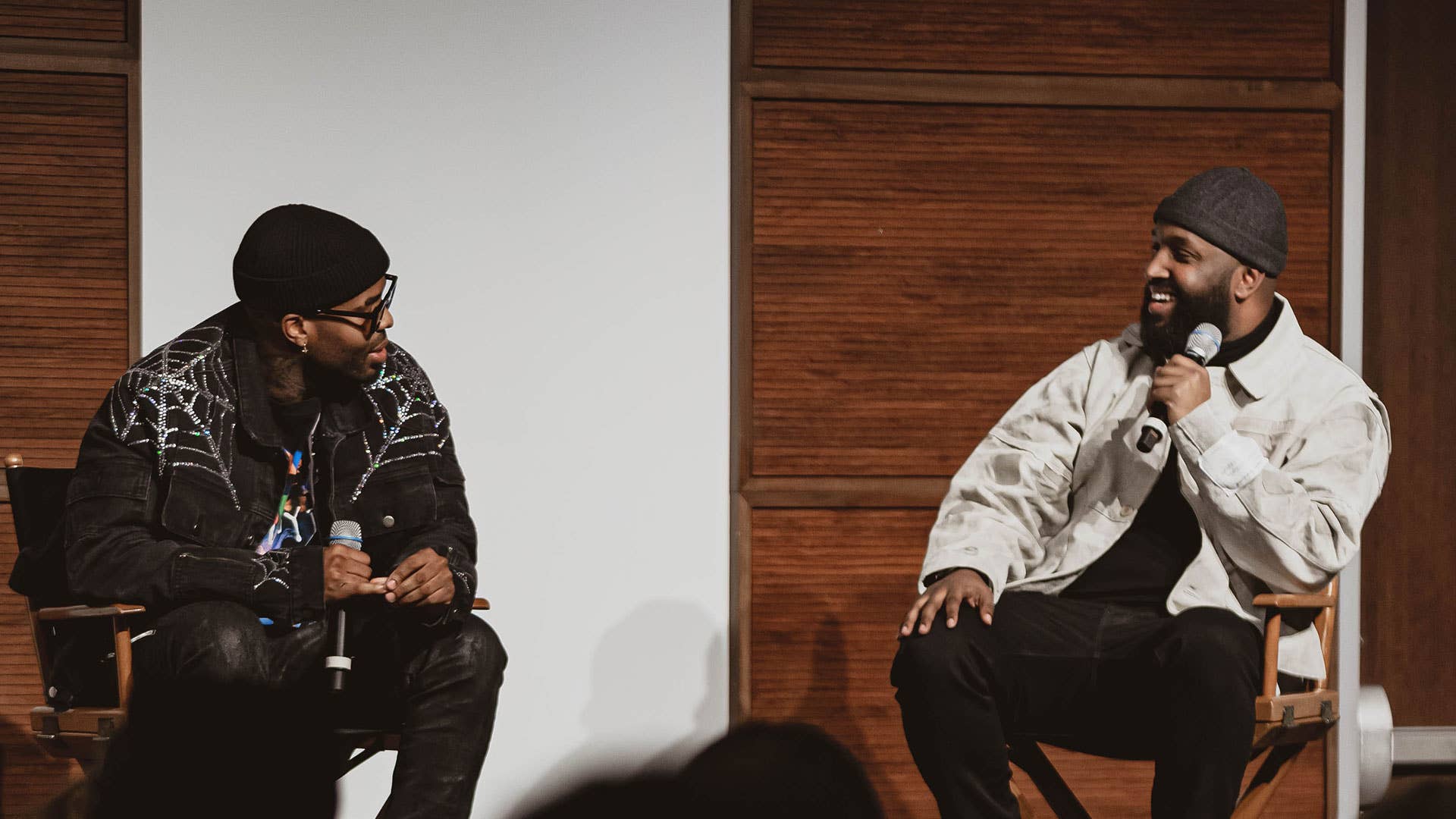
Ever since The Weeknd’s arts incubator HXOUSE had its star-studded launch in 2018, it was clear that it had both the credibility and the resources to support its mission of being a bridge for emerging creatives. Now, after a successful first cohort, countless industry cosigns, and a sought-after panel series, HXOUSE is launching Black HXOUSE, a new program tailored to BIPOC.
As its name suggests, Black HXOUSE is dedicated to honing and advancing the ideas and initiatives brought forward by Black and Indigenous people of colour. Given their own backgrounds, it’s a project that’s particularly close to home for HXOUSE co-founders Ahmed Ismail and La Mar Taylor. “Being two Black brothers and co-founders of this company, we know what it’s like to come from that corner, where you’re not fully being presented the best options that everyone else is getting,” Taylor, The Weeknd’s creative director, told us in a Zoom call ahead of Black HXOUSE’s launch. “So many marginalized communities in Toronto, across Canada and around the world that are just stuck in the rut. Time and time again, it’s a hashtag, or a protest, or people standing up and a couple of policies going through, but no real change comes out of it,” he continued.
The TD Bank-backed program is a timeless idea—Canada has always needed this. But now is a particularly good time because of the conversations surrounding race and equity in Canada. These conversations aren’t new, but the scope is broadening and the tone is changing. Social media is lifting the veil on the brutal and fatal realities of racism, so non-Black people can now see, and hopefully understand, the ugliness of inequity and the fervour with which Black people are seeking to dismantle it.
But it’s impossible to overcome these barriers without confronting them directly. Black HXOUSE as an individual entity has the freedom to tailor its programming, mentors, and curriculum to the distinct obstacles facing Black and Indigenous people in the workforce.
Like HXOUSE, the program is exceptionally well-rounded. The business prowess from Taylor and Ismail’s past work is complimented by the cool credibility that comes with the eponymous XO cosign.
We caught up with Ismail and Taylor ahead of Black HXOUSE’s launch to talk about their newest endeavour.
Black HXOUSE was first announced earlier this year, but was paused because of the quarantine. How has the project changed since then?
La Mar Taylor: In the wake of all of the stuff happening with George Floyd, with the civil unrest, the protests, and the riots, it just became more apparent that it was a huge issue that we needed to speak on. We went back to the drawing board and we created a bunch of different programs around what we could do to address that narrative. Nothing changed, we just came up with a better strategy.
Ahmed Ismail: We knew that we were going to add more programming, but as we realize now, it is its own pillar, it’s its own franchise, it’s its own department inside of HXOUSE. We wanted to make sure that it was inclusive to a lot more individuals who need this help, too.

You’ve said that HXOUSE is a tiny org taking on the world’s biggest problems. We obviously know what those problems are, but how do you plan to solve them with Black HXOUSE?
Ismail: To take on big problems is nothing new when we have no alternative. If you’re the status quo and you’ve benefited from being the status quo, you also have no intentions of making any changes to help society. But with La Mar and I having had to scratch and climb to where we are today, we knew that while we have gotten this far, the pressures are getting harder for young people every day for all young people, not just people of colour. We know that all marginalized communities have trouble getting through this concrete barrier.
As we developed HXOUSE, we knew that pushing this cause for BIPOC advancement was going to require a long term commitment. It wasn’t going to be a one-off, it wasn’t going to be one panel. We wanted something that would live on after us.
How will Black HXOUSE be different from HXOUSE?
Ismail: With Black HXOUSE, we are spending more time assessing the needs of the individuals that we are supporting and we’re working with partners that are also in the community. In addition to that, with Black HXOUSE we are spending a lot more time having more of a business acumen to advance their hustle and their agenda. That doesn’t mean that you can’t attend an event if you aren’t a BIPOC.
We’re just celebrating diversity. A lot of times we find ourselves celebrating the Black community one day in February at best. So as two Black founders who have supported all groups and have been inclusive and demographically neutral, we wanted to do something for our own community.

Why make it a separate program instead of just integrating this programming into HXOUSE?
Taylor: Black creatives need specific types of training for the conditions that we’re in right now. What we were focusing on before was more creative thinking. As in, how to better your craft. But this is about navigating terrains that don’t make it easy based on the colour of your skin or your economic background. We need to get people ready for these fights that they are going to face when they’re in the industry.
Describe the ideal Black HXOUSE candidate.
Ismail: Somebody who is hungry. Somebody who believes in themselves more than anybody else does. Somebody who is not afraid to be criticized for what they’re doing. Somebody who is not afraid to use that criticism to build. Someone who is open to coaching and open to learning, but also not afraid to fail. We want to put our participants in a situation where they have a safe space and a network helping them to extend the capabilities of their idea and make them more dynamic as a person. That’s our ideal scenario for a candidate.

